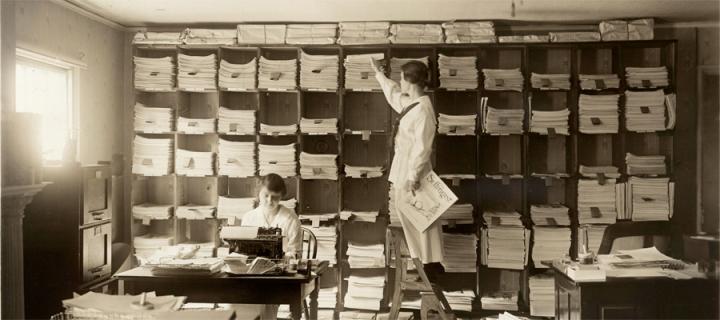The seven wonders of women’s education
University hosted Wikipedia editathon tackles the Edinburgh 7 - pioneering women whose stories demand a wider audience.

As part of Innovative Learning Week 2015, the University hosted a series of Wikipedia editathons focused on women in science.
A mix of students, staff, alumni and the general public gathered at Appleton Tower, along with distance learners who joined online, for a beginner's guide to wiki editing. Each self-contained session concentrated on a different skill; including dealing with sources, creating links between articles and using images.
At the end of the week 12 articles had been created, 17 improved upon and Wikimedia UK didn’t disagree when the event was proclaimed the largest editathon for women and science in the UK.
Why Wikipedia?
The man who invented the World Wide Web, Sir Tim Berners-Lee’s egalitarian vision of an open access resource driving education, knowledge and understanding has, in many respects, failed; or at least remains unfulfilled. Our online experiences are increasingly governed by closed systems and commercial interests.
Wikipedia sits closest to the original egalitarian vision of the Web, and exists as a massive open educational resource that has huge potential within more traditional education models.
Where most other ‘re-usable learning objects’ tend not to succeed because of problems to do with discoverability and suitability for re-purposing in different learning and teaching contexts, Wikipedia seems to have no problem with either of those barriers.
Online inequalities
There are, of course, problems with the information that exists on Wikipedia. One of which the editathon decided to explicitly address by selecting the Edinburgh 7 as the focus for the week’s activity.
Ally Crockford from the National Library of Scotland believes the gender gap is compounded by technical and confidence issues but ultimately reflects the world we live in.
In many ways, the gaps on Wikipedia reflect existing social inequalities and biases: gender, racial, and socio-economic disparities, amongst others, are carried through in the number and quality of articles, as well as the diversity of Wikipedia contributors.
Who were the Edinburgh 7?
The Edinburgh 7 are significant figures in the history of women’s education as the first matriculated students at any British University.
Academically accomplished, they successfully challenged the widely held belief that women lacked both the intellect and stamina to study for professional careers.
We chose (the Edinburgh Seven) because we know it is a good story. Importantly, we know that young women need good role models and we know people look to Wikipedia for information and this story was simply not well told.
Also referred to as Septem contra Edinam (Seven against Edinburgh), the group was made up of Sophia Jex-Blake, Isabel Thorne, Edith Pechey, Matilda Chaplin, Helen Evans, Mary Anderson and Emily Bovell.
You can read more about them by visiting the recently improved Wikipedia entry.
Read about the Edinburgh 7 on Wikipedia
They began a sea change in attitudes towards women studying at University that meant that the generation that followed them and every generation since, including us, has benefitted from the campaign that they started and the battles that they fought.
Further information
The editathon was a collaboration between Learning, Teaching & Web, User Services, Library & University Collections Divisions of Information Services and the Moray House School of Education.

